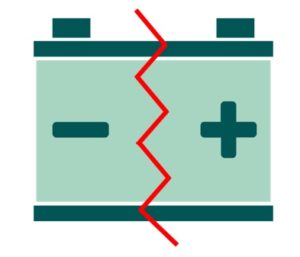A decision announced by the European Chemicals Agency on 27 June to add lead metal to the EU REACH candidate list of substances requiring authorisation flies in the face of the battery action plan unveiled just weeks ago by the EU Commission, industry has warned.
Lead is used in batteries which provide more than 75% of worldwide rechargeable energy storage and is essential in applications including stop/start car engines, as well as computer and emergency back-up power supplies.
The Lead REACH consortium, a group representing battery makers, lead producers and recyclers claim the move is a backwards step and is out of line with the EU Commission’s mobility and decarbonisation plans.
 Lisa Allen of the Lead REACH Consortium said: “Less than a month after the Commission launched a plan to create a competitive and sustainable battery manufacturing industry in Europe, another part of the organisation is moving to ban a key substance in battery manufacturing –one that is already subject to stringent EU legislation governing its use and one that is not accessible to consumers as batteries are sealed units. By doing this the regulators are effectively short-circuiting the Commission’s battery action plan.
Lisa Allen of the Lead REACH Consortium said: “Less than a month after the Commission launched a plan to create a competitive and sustainable battery manufacturing industry in Europe, another part of the organisation is moving to ban a key substance in battery manufacturing –one that is already subject to stringent EU legislation governing its use and one that is not accessible to consumers as batteries are sealed units. By doing this the regulators are effectively short-circuiting the Commission’s battery action plan.
“We urgently need a more coherent plan to prevent this kind of disjointed policy-making. It is damaging for industry and its damaging for consumers. It also makes attempts to decarbonise the economy and boost electrification that much more difficult.
“Some member states involved in the decision to add lead metal to the candidate list are rightly questioning whether future REACH authorisation of lead metal is proportionate when considering the plethora of existing and long standing EU regulation that already exists to control exposure and use of lead. The Commission must urgently find a more appropriate mechanism to address any residual exposure concerns because REACH authorisation is clearly counterproductive.”
In a parallel action the Commission may soon ask the Reach Committee to support adding four lead compounds – which now only have significant use in EU battery manufacture – to the ‘authorisation list’ as part of its attempts to ban toxic materials.
“All batteries placed on the market contain or use hazardous substances for their manufacture. If the EU continues on its course preventing industry using these substances we’ll have no battery industry of any sort, let alone the many industries who rely on our battery-making capability. Policymakers must reflect on the full range of potential risk management measures that are available so that those which best balance the EU’s competitiveness with their effectiveness to ensure human health protection and environmental goals ” Allen added.
The Consortium is calling on the Commission to find a more proportionate way of managing any residual risks resulting from use of lead compounds and lead metal in battery technologies which support the transformation to a decarbonised economy.
Lead batteries are already 99% recycled in Europe – one of the highest recycling rates of any product. And advanced lead batteries are used to store renewable energy generated by wind and solar. Day-to-day lead batteries support emergency back-up power in hospitals, mobile phone networks and computer servers which support the internet.
Ends
Note to editors:
For more information contact the Pb REACH Consortium Media Office:
Hywel Jarman [email protected] Tel: +44 (0) 207 833 8090; +44 (0) 7718 483887
Niamh McLaughlin [email protected] Tel: +44 (0) 207 833 8090
About the Pb REACH Consortium
The Pb REACH Consortium is a voluntary initiative managed by the International Lead Association (ILA), originally set up in partnership with the European Lead Oxide Association and European Lead Stabiliser Association. The Consortium represents a membership of more than 90 legal entities involved in the mining, smelting, refining and recycling of lead, as well as manufacturers of lead compounds and producers of lead-based automotive and industrial batteries.
